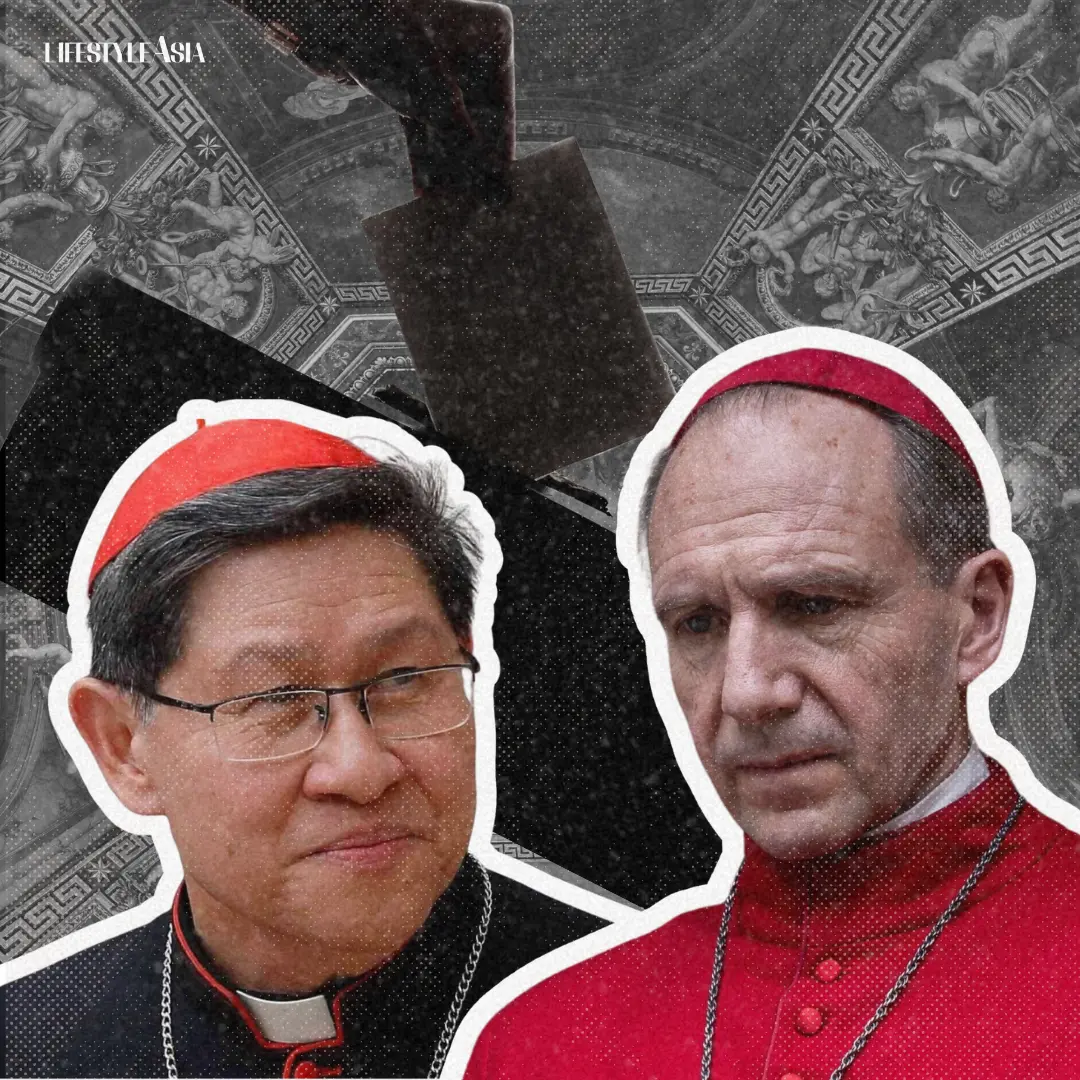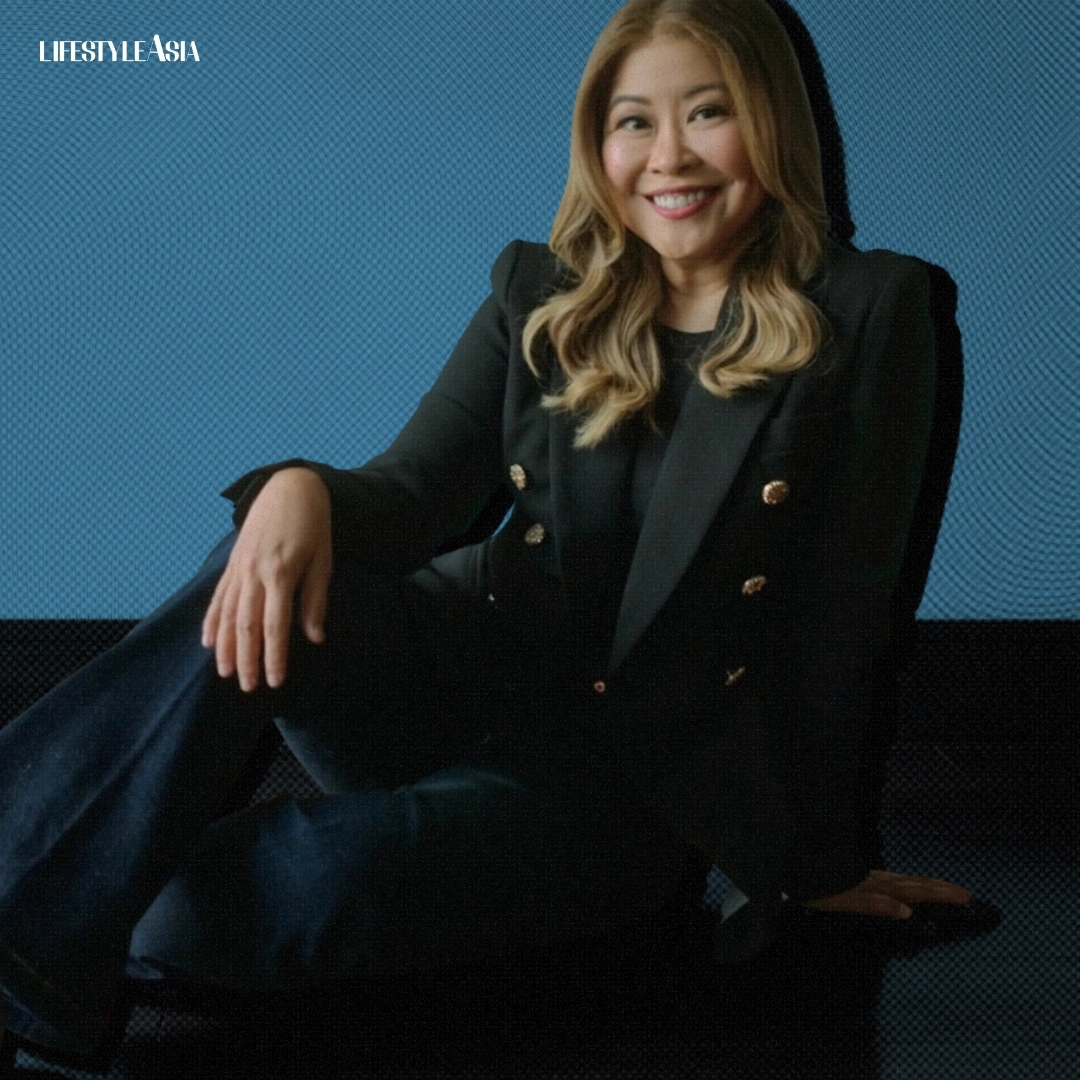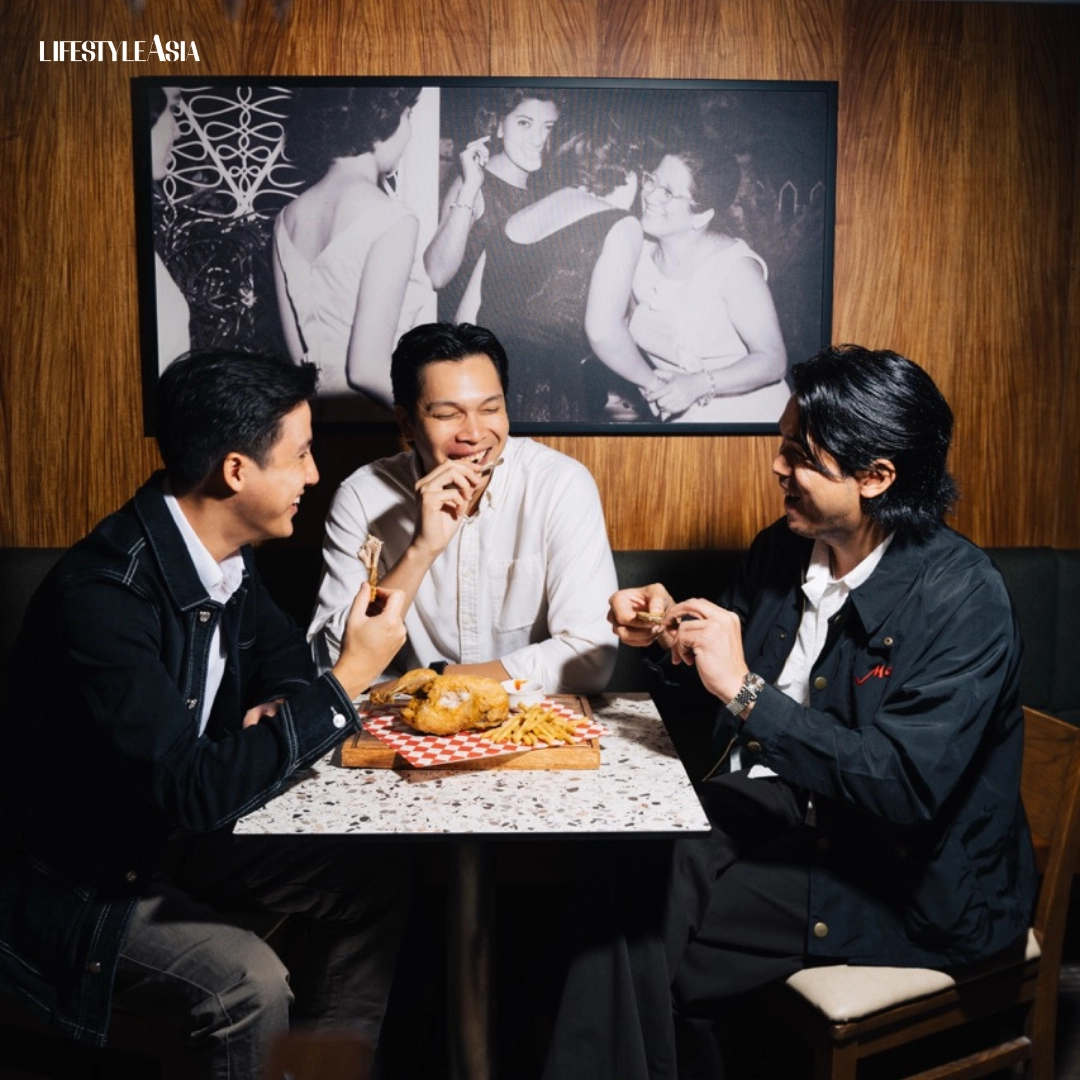The Papal Conclave will begin electing a new pope on May 7; meanwhile, the internet has already turned the event into a competition-like spectacle, thanks in part to the widespread popularity of 2024’s “Conclave” film.
Recently, the Catholic Bishops Conference of the Philippines (CBCP) released a statement calling on the public to “avoid openly advocating for Luis Antonio Cardinal Tagle as the next Pope,” as The Roman Catholic Archdiocese of Manila describes in its report. It’s a reminder, of course, that this big decision ultimately falls on the roughly 135 eligible cardinals who’ll be voting for the next pontiff during the elusive Papal Conclave.
“It’s not prudent for the public to promote Cardinal Tagle as the next Pope, as this could create the impression that the conclave might be swayed by external influences if Cardinal Tagle is elected as the next pontiff,” shares Fr. Jerome Secillano, Executive Secretary of the CBCP Episcopal Commission on Public Affairs, in a segment on Radio Veritas.
READ ALSO: From Our Archives: Cover Story Of Pope Francis From Lifestyle Asia’s December-January 2015 Issue
Cardinal Tagle Is The Internet’s Papabile
Let’s back track a bit and review why the statement was necessary to begin with. Since the death of Pope Francis, everyone from major news outlets to random users on the internet have been sharing their thoughts on who could (and for many, who should) become the next leader of the Roman Catholic Church based on a list of “papabiles”: a term used to refer to cardinals who are strong or “likely” candidates for the papacy.
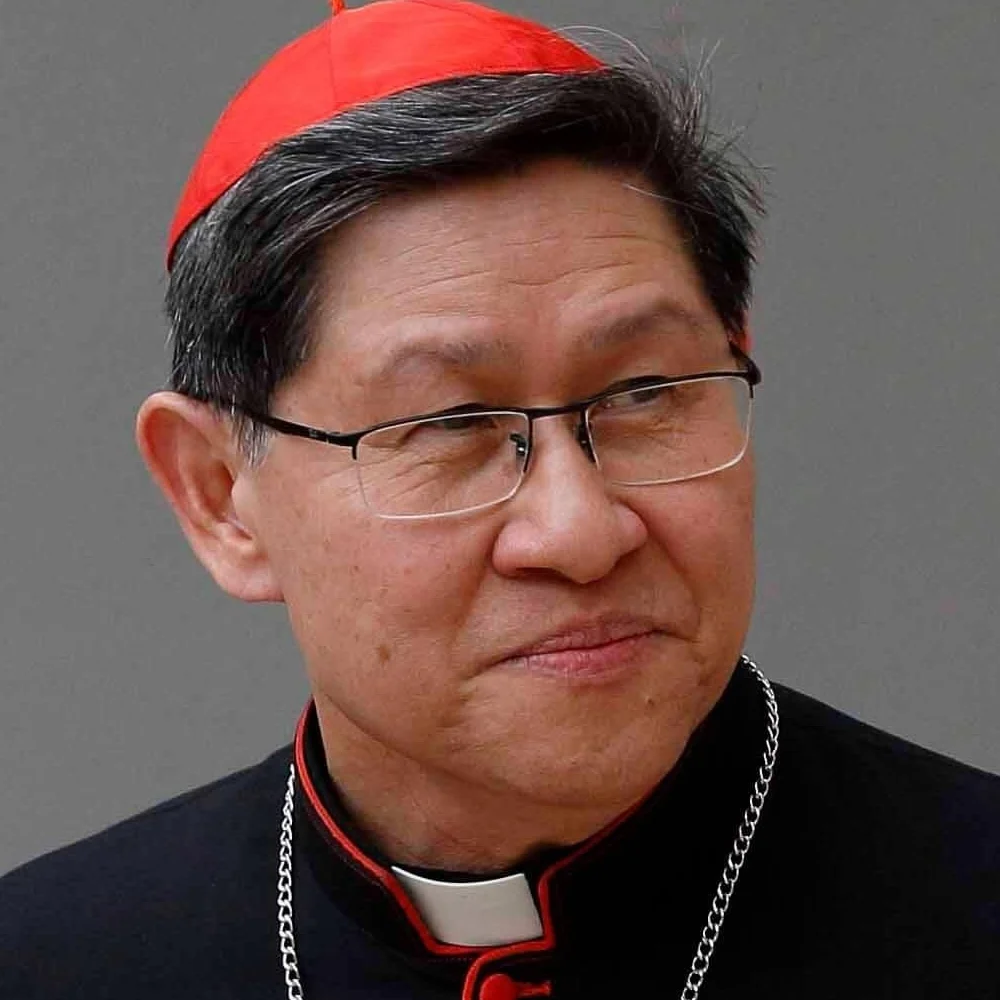
One of the names circulating the most in these circles is the Philippines’s very own Cardinal Luis Antonio “Chito” Tagle. He was a close friend of Pope Francis, and shares in his vision of a more inclusive and compassionate Catholic Church—so much so that many have taken to calling him “Asian Francis.”
Naturally, Filipino Catholics and fans of the late pope have expressed their ardent support for Tagle online in the only way they can: memes, fancams synced to catchy pop songs, and thought pieces galore. Outside the digital world, one seminary gathers a plethora of photos and mementos of the cardinal, a lesson in environmental storytelling that depicts the kind of devotion and collective pride Filipinos possess for anyone representing them on a larger stage—a reverence that’s not just present in matters of the Catholic faith, but also other affairs like Miss Universe and The Olympics.
But this isn’t a beauty pageant or showcase of athletic prowess. The thing about being a papabile is that it doesn’t place you in a straightforward elimination process. In more than a few cases, cardinals who were never on this list were voted pope seemingly out of nowhere. These include John XXIII, John Paul I, John Paul II, and yes, even Pope Francis was a wild card who wasn’t on any papabile lists during the 2013 conclave season. Some might even call the title “papabile” a handicap rather than a boon, a heavy crown that brings its own set of pressures—both within and outside the Vatican.
When you’re in line to succeed a pontiff as influential as Pope Francis, all eyes are on you. Or as writer Ed Condon puts it in an article for The Pillar: “Public perceptions are now likely to shape private impressions among the electors more than ever before. And what they are increasingly reading is that no one is either good enough, or sufficiently loyal to Pope Francis, to make a worthy successor.”
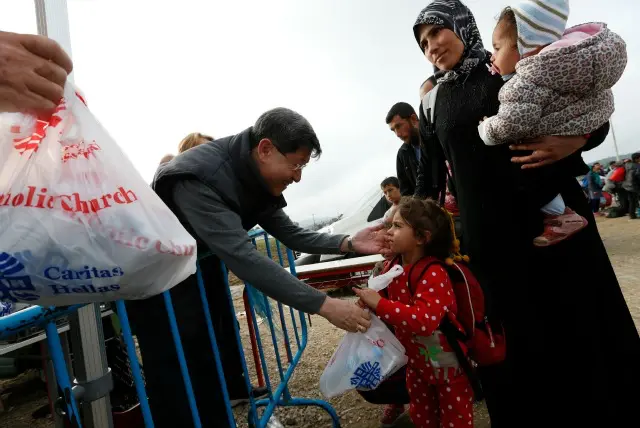
So conversely, there are people out there scrutinizing every little thing Tagle does as well. Take what netizens are calling a “smear campaign” against the cardinal, which (if you read this, you may laugh at the ridiculousness of it all) began after a video of him happily singing a rendition of John Lennon’s song “Imagine”—a humanist anthem that introduced a hypothetical world without heaven, hell, or religion—went viral. Certain users have criticized his choice of song due to its anti-religion undertones (which isn’t the most nuanced reading of the piece, but that’s another topic altogether), though it’s worth noting he excluded any mentions of heaven, hell, and religion in his version.
In typical fashion, other netizens are fighting the backlash with humor. “A Tagle smear campaign hinged on karaoke is wild. God forbid a Filipino fulfills his musical mandate,” writes X user Liana Apostol in a tweet. User Nick B posted a TikTok showing karaoke night at the Vatican “once we elect the first Filipino pope.”
Although there’s no “we” in the Conclave equation, it’s hard to believe that what we say on the internet doesn’t carry any weight, for better or for worse—after all, why would they issue a statement on “external influences” if that was the case? This campaigning mentality is the result of an interesting phenomenon that has become more evident today than ever before.
The Conclave Becomes A Game Show
Film is many people’s window to an unfamiliar world. Mix it with something as elusive as the Papal Conclave, and you have a hit that’ll undoubtedly become everyone’s reference point for understanding the practice’s inner workings (inaccuracies and misrepresentations included). The 2009 film Angels & Demons (starring Tom Hanks) also featured the assembly in action, but the recent Oscar-winning Conclave film arguably brought the secretive world even closer to public consciousness.
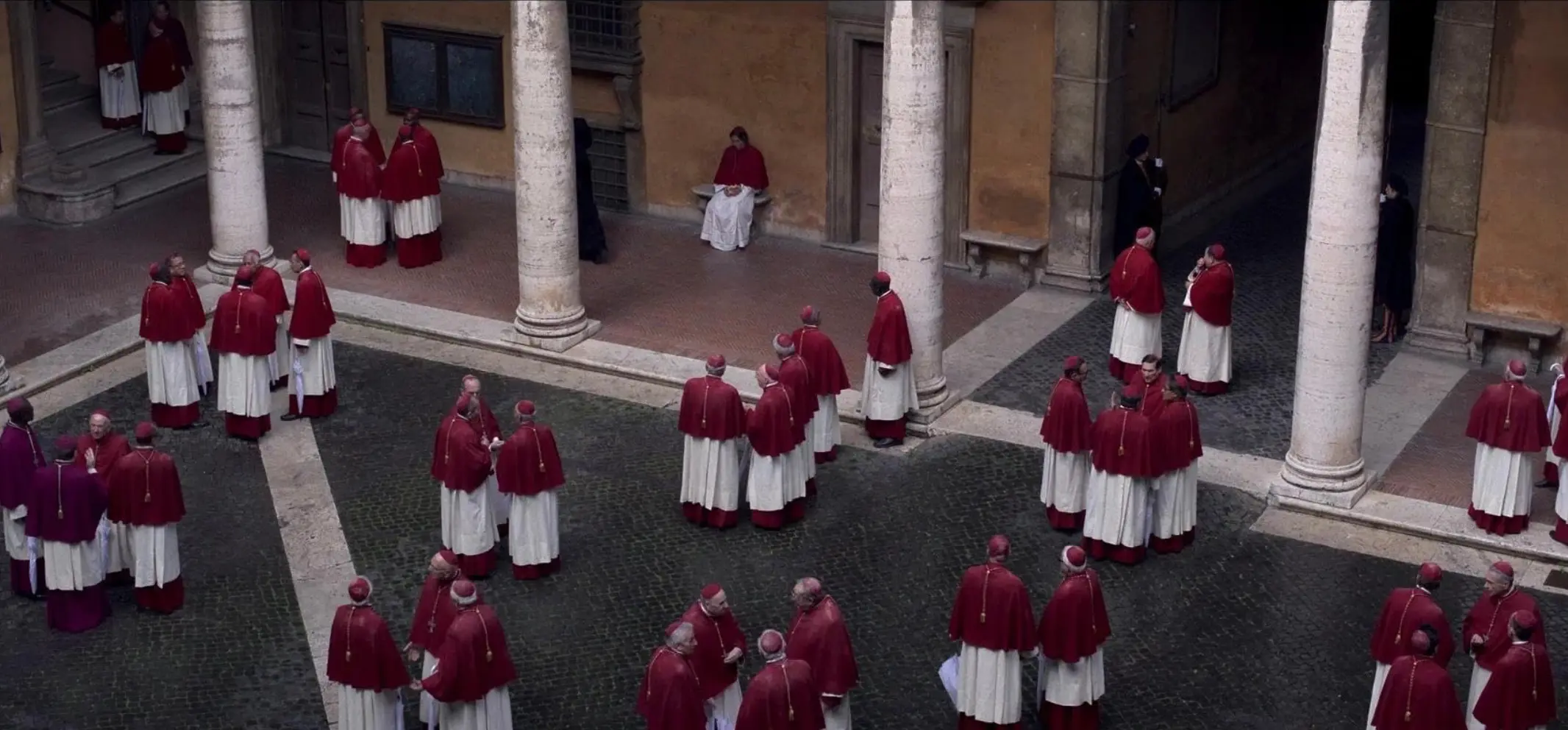
With stunning cinematography and a compelling script, the 2024 flick based on Robert Harris’s novel of the same name featured complex characters and a thrilling web of internal politics that, funny enough, isn’t so different from the melodrama of televised competitions and game shows like America’s Next Top Model, RuPaul’s Drag Race, and Hell’s Kitchen. Conflicts of interest and ideological disagreements abound, further complicated by a series of unfolding scandals that leaves protagonist Cardinal Thomas Lawrence (Ralph Fiennes) —who’s tasked with overseeing the Conclave—more drained with every passing scene.
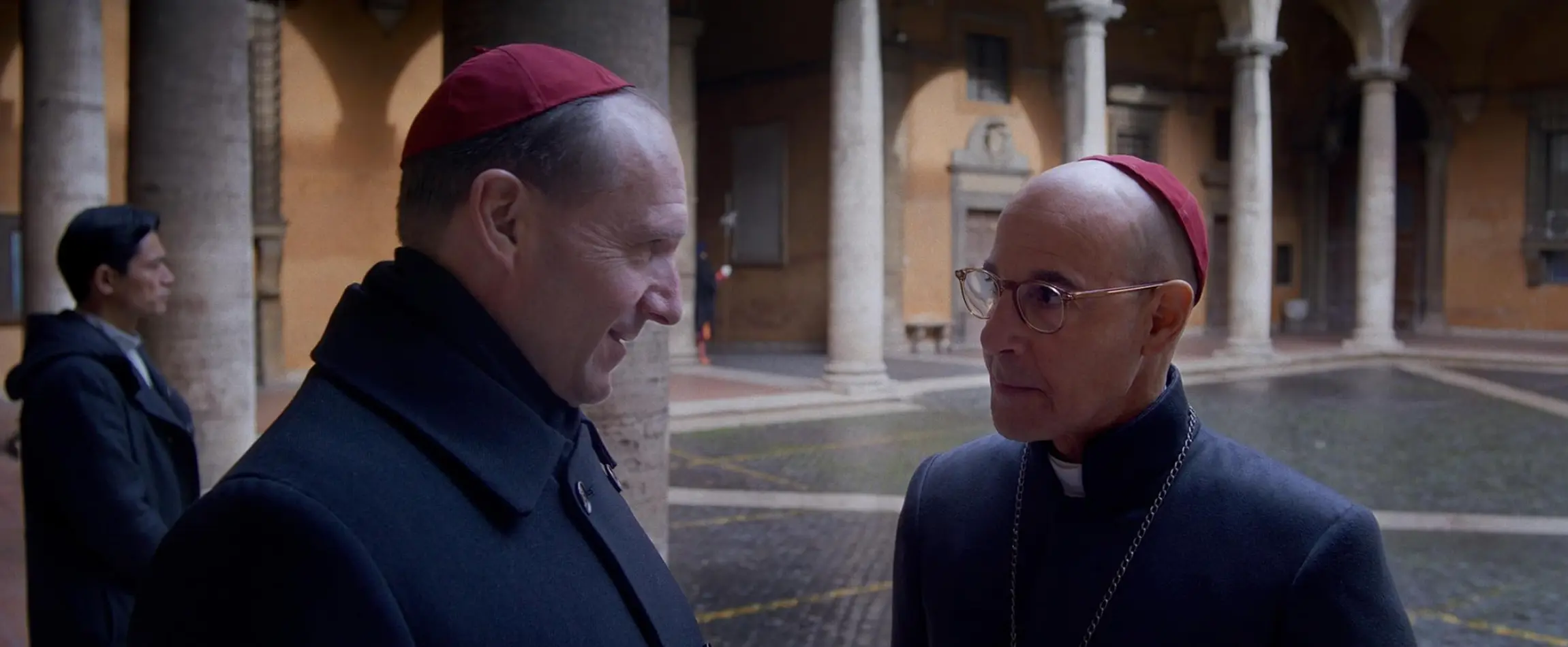
“Pick a side,” Cardinal Aldo Bellini (Stanley Tucci) tells Lawrence in a heated argument, referring to the battle between the cardinals’s more progressive and traditionalist factions. The men take sides, gossiping and even trying to sabotage one another, as Lawrence attempts to play the role of referee (despite the fact that he’s experiencing a crisis of faith himself). The film has all the ingredients to make for a well-loved, dramatized Hollywood spectacle of the assembly—and it’s undoubtedly influenced how audiences imagine the proceedings of this year’s Papal Conclave.
Since Pope Francis’s death, viewership of Conclave has soared by up to 283%, according to an article by Variety, garnering 6.9 million minutes in viewership by the end of April 21 alone. People are trying to understand what’s to come, and those who’ve already watched the film can’t help but wonder how much of it is true. There’s nothing to do but imagine what goes on behind the locked doors of the Sistine Chapel, where the voting takes place.
The gameshow-ification of the Conclave began long before the start date of this year’s assembly was announced. People took to social media posting memes, picking their favorites (or sure, “biases” if we’re to commit to the bit), and arranging cardinals into convenient charts conveying their stances on important issues, complete with the clear-cut labels (but we all know these things aren’t dichotomous). Archetypes, stereotypes, and personalities saturate our everyday lives through pop culture and media; for many, it’s only natural to gravitate towards making characters out of real people, distilling them into digestible personas to root for or shun.
Most of the public is aware they can’t vote for the next pope, but that won’t prevent them from finding ways to be part of the larger conversation. Conclave has brought an unprecedented level of accessibility to a practice that was once so obscure, despite being one of the most important leadership elections in history.
Is all the political drama and cutthroat competition an accurate representation of the assembly? According to Cardinal Shaun O’Malley, a Franciscan friar who took part in the 2013 Conclave that elected Pope Francis, not quite. In a personal blogpost reviewing the film, he writes: “My experience of being in at least one conclave was not that it was some sort of scene of political backroom plotting of how to get your candidate elected. The actual conclave was the experience of a very intense retreat, where there was much prayer and silence, and listening to conferences on spiritual themes. Throughout the process, we had a very acute awareness that millions of Catholics around the world were praying for us, so that the Holy Spirit would guide us in our deliberations.”
Parallels Between The 2025 Conclave And Conclave Film
As a writer and reader, I’m acutely aware of the fact that every piece of fiction—however much it’s spun and changed—contains fragments of reality. The operations during an actual Conclave might not be as catty, suspenseful, and scandalous as those depicted in the film, but that isn’t to say politics is absent.
To repeat the mantra of every college political science professor: everything is political, even if some people want to leave politics out of their affairs. It’s born from human relationships and ideas, an inextricable part of nearly every decision we make. Saying that this year’s Conclave, or any for that matter, is an exception would be disingenuous at best.
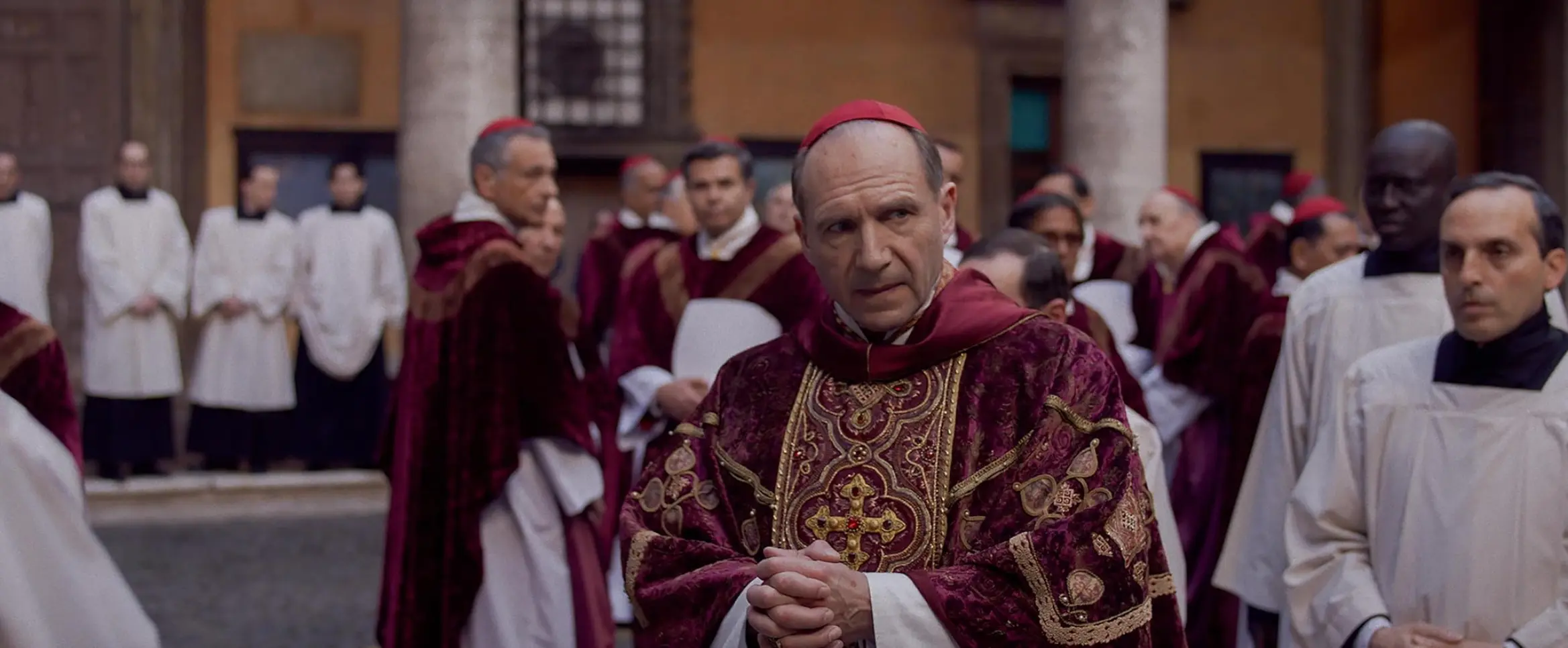
It’s not like Harris set out to create a 100% faithful depiction of the assembly when he was writing Conclave. His project was clear from the very beginning, as he expresses in an interview with Kate Tuttle of The Boston Globe: “I came at this purely from a secular point of view of someone who is interested in institutions, how they work, and the power plays within them.”
The Catholic Church is an institution, at the end of the day. Its leaders and members share diverse backgrounds, opinions, ideals, and interests, even if they all serve one God. News outlets like CNN and The Guardian have already discussed how this year’s Conclave will be one of the most unpredictable. A vast majority of eligible cardinals have never experienced a Conclave themselves, and a considerable percentage of them hail from non-European countries—chosen by Pope Francis to reflect a more global Catholic Church.
Certain aspects of the Conclave film have unfolded in real life. First is the untimely death of the pope, which made the film an eerily prophetic one, or at the very least, timely.
In the film (spoiler alert), Cardinal Lawrence finds hidden letters and files from the pope’s room that reveal the pontiff’s dismissal of Cardinal Joseph Tremblay (John Lithgow) shortly before his passing, on the grounds of simony. In real life? The Vatican’s Cardinal Secretary of State Pietro Parolin, who presides over the cardinal electors like Lawrence, reportedly presented letters from the late pope convicting Cardinal Angelo Becciu of embezzlement, aggravated fraud, and abuse of office, banning Becciu from voting in this year’s conclave. Both Tremblay and Becciu were close advisers to their popes, and both adamantly brushed off the accusations.
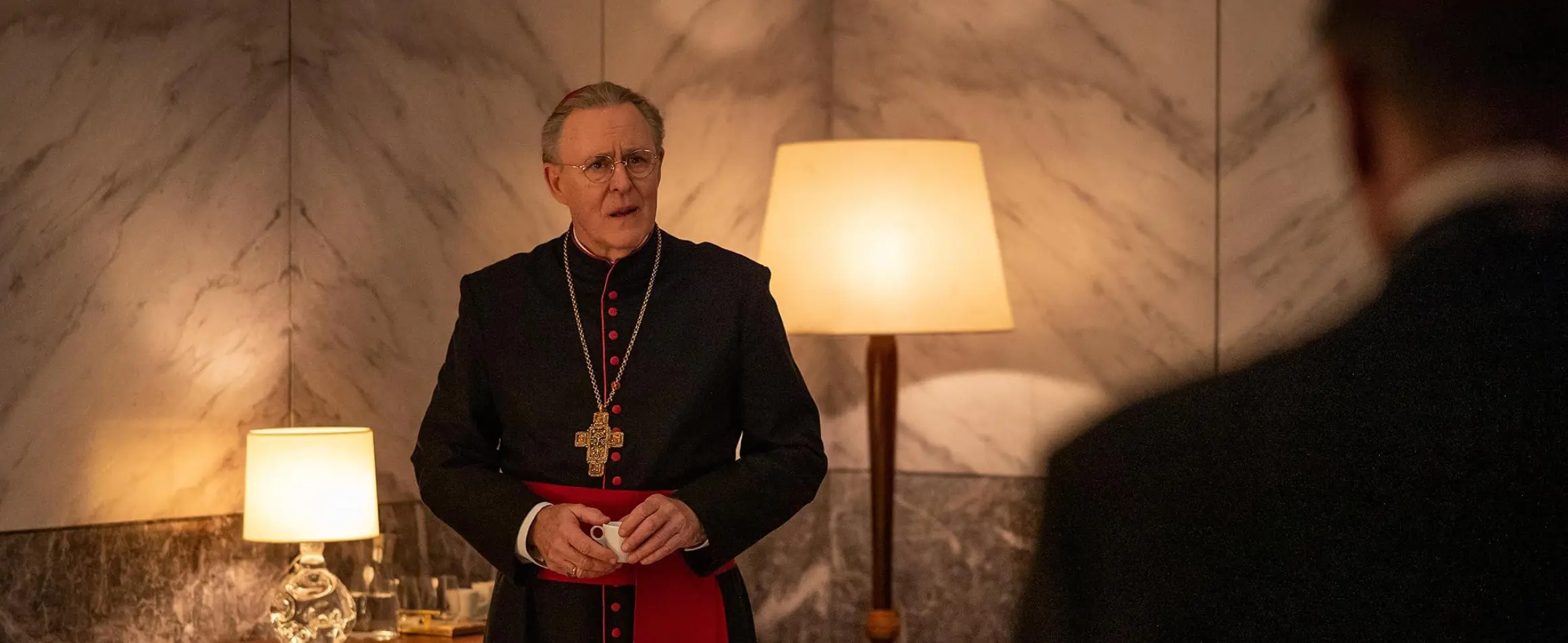
The College of Cardinals are surprised to find a new member among their ranks at the start of the film, one they’ve never met before: Cardinal Vincent Benitez (Carlos Diehz), who served in war-torn countries before making his way to the Vatican for voting. Similarly, many cardinals in the upcoming Conclave have never met one another prior to the assembly (December 2024 saw 20 new cardinals under Pope Francis’s leadership), as Harriet Sherwood of The Guardian details.
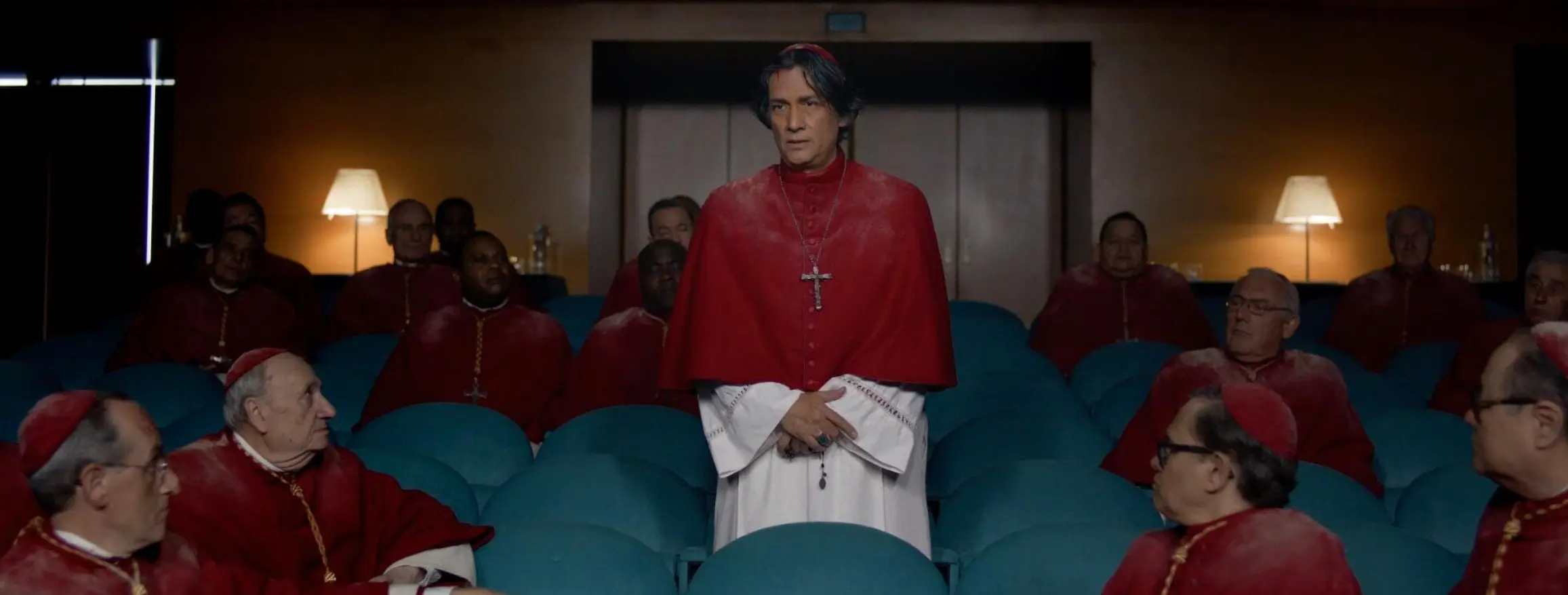
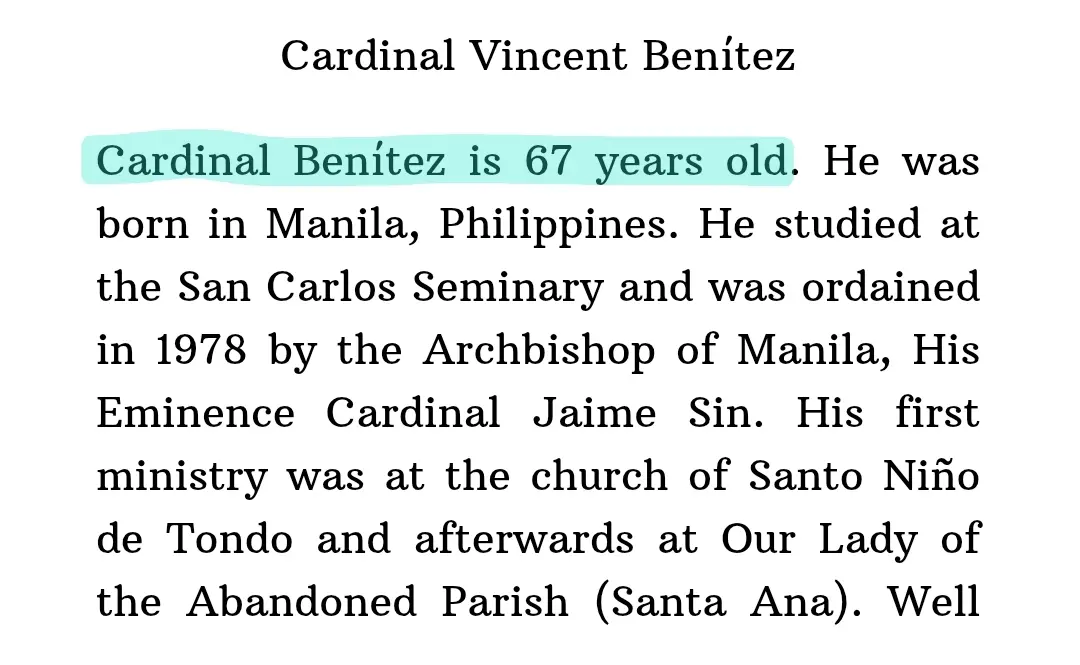
And, perhaps not as important a detail but still an interesting parallel, Cardinal Benitez was originally Filipino in Harris’s novel, his nationality changed to Mexican for the film. In the book, he’s described as being 67 years old; the same age of Cardinal Tagle today. It’s Benitez—the progressive, non-European wildcard—who becomes the next pontiff. Whether or not this, too, will become a prophecy of sorts remains to be seen.
All this to say, people have good reason to be invested in the upcoming Conclave, and succeeding ones, even if they only have dramatized renditions of the congregation as basis for their reactions. Like all those before him, whoever sits on the throne of the Holy See will hold the power to change the perspectives and actions of millions of Roman Catholics—including leaders and lawmakers—around the world.
In an increasingly divisive society filled with political tension, that’s a kind of authority that should be wielded with great care. In the words of fictional Cardinal Benitez: “But things are not the Church. The Church is not tradition. The Church is not the past. The Church is what we do next.”
